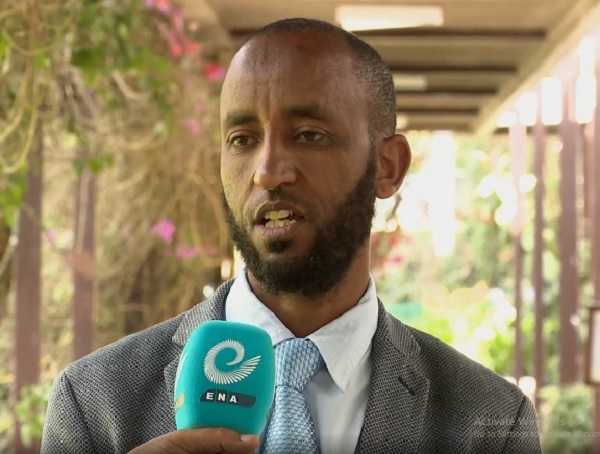Ethiopia Massively Working to Cope Consequences of Climate Change - ENA English
Ethiopia Massively Working to Cope Consequences of Climate Change

Addis Ababa (ENA) February 7/2023 The Ethiopian government has set a goal of overcoming challenges to respond to climate change, the Ethiopian Environmental Protection Authority, Multilateral Environmental Agreements Director, Mensur Dessie, said.
According to him, despite its negligible contribution to global warming, Ethiopia is strongly affected by the consequences of climate change that affects its environment, agriculture, water, and its food and energy production.
We represent those at the front lines of the impacts of climate change despite contributing the least to causing this crisis, he said.
"We are aware of the immense challenges that climate change and environmental degradation pose for the world and particularly Ethiopia."
In this regard, we firmly believe that our efforts to ensure a prosperous Ethiopia must aim to cope with the consequences of climate change, he added.
To enable Ethiopia to mitigate and adapt to climate change, the national adaptation plan was launched focusing on the sectors that have been identified as most vulnerable, namely agriculture, forestry, health, transport, power, industry, water and urban areas, the director noted.
Within these sectors, 18 adaptation options have been identified for implementation at all levels and across different development sectors, he said.
Enhancing food security by improving agriculture productivity in a climate smart manner, improving access to potable water, and strengthening sustainable natural resource management through safeguarding landscapes and watersheds are among the issues being addressed by the program, he noted.
As part of this engagement, the nation has been carrying out a massive afforestation program nationwide that could be mentioned as one of the key efforts committed by the government to mitigating the negative consequences of climate change.
Ethiopia's green legacy initiative, which undertakes a massive afforestation program through planting about 25 billion seedlings in Ethiopia between 2019 and 2022 and providing seedlings to neighboring countries to grow green together has been contributing a lot, he indicated.
According to Mensur, massive voluntary free labor watershed management practices in Ethiopia every year, water basin actions across major basins and sustainable land management program works are one of the very important usual practices that could significantly address the impacts of climate change on water.
Ethiopia’s 10-year development plan recognizes building a climate-resilient and green economy as one of its key pillars, he added.
In the long term, Ethiopia aims to become a carbon-neutral economy while attaining prosperity in the country around 2050, he said.